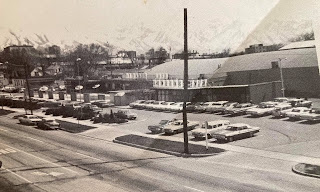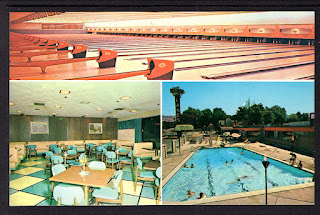As such, in the early 1960s some of Salt Lake City's Black residents took inspiration from Martin Luther King’s work in the South and organized peaceful demonstrations in SLC to fight segregation practices.
In Joan Nabor’s oral history interview, she said “In Utah…it’s the institutional racism that you have to deal with, it’s implied and nobody’s going to come out in the open and tell you…The fact that Blacks cannot bowl here, those kinds of things you can fight. But you can’t fight when everything is just kinda implied but not said outwardly.”
So, Joan’s husband (and first Black professor at the University of Utah), Chuck Nabors organized some members of the Salt Lake City NAACP to peacefully picket against Rancho Bowling.
In 1963 Rancho Lanes dropped its segregation policy.
Sources:
Oral History Interviews at Marriott Library: Joan Nabors,
Chuck Nabors, Victor Gordon, William Price, Bernie Benns, Eva Sexton, James
Green
OF NOTE: Also in 1963, this core group of protesters lobbied the Utah Legislature for a Public Accommodations Law that would ensure integration of various establishments. Most Utah Legislatures ignored this idea and went about their normal business.
However, the 1963 Utah Legislature decided to repeal the
Utah miscegenation law (racial intermarriage). Outside of the South, Utah was
the second to last state to overturn such legislation.



No comments:
Post a Comment